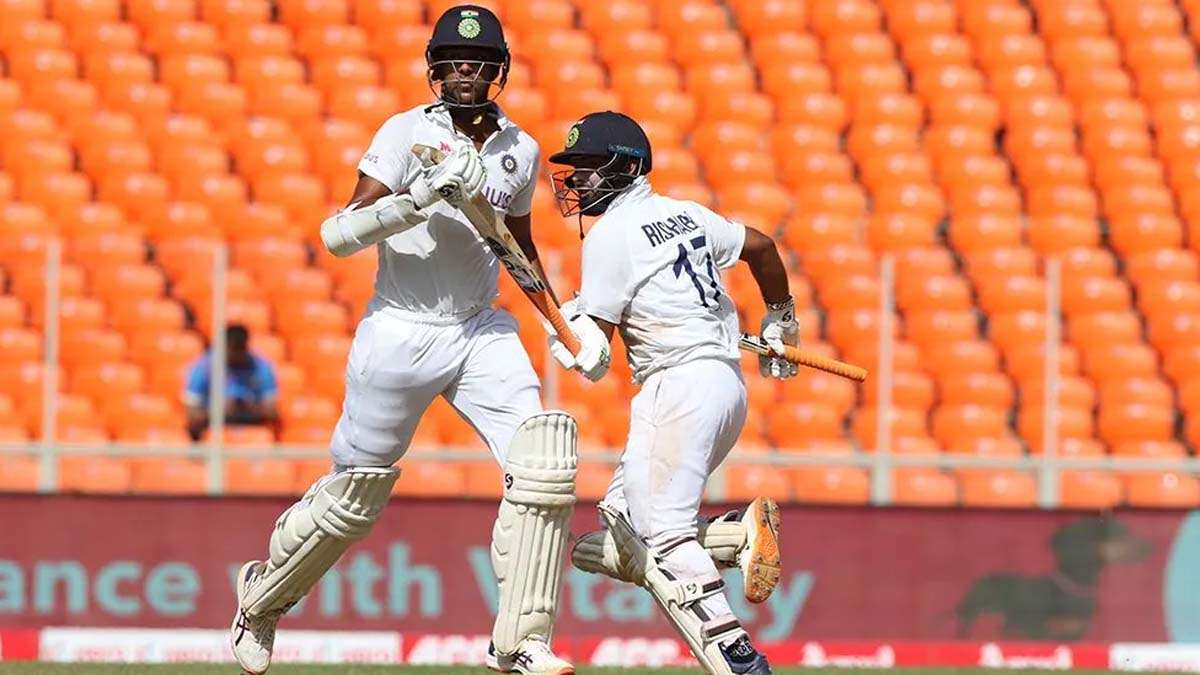What a match it turned out to be! The fourth Test at Manchester will not merely go down as a drawn encounter in the record books—it will be remembered as a watershed moment for a young Indian Test team that defied odds, braved English hostility both on and off the pitch, and displayed character, resilience, and unity few expected of them. Against a charged English pace battery and a hostile media narrative, the Indian boys stood tall, not with star power or reputation, but with raw courage and unshakable belief in themselves.
When India began their second innings trailing by a mammoth 311 runs, and with two wickets—Yashasvi Jaiswal and Sai Sudharsan—falling for ducks before a run was scored, not even the most optimistic fan could have predicted what followed. The game, in the minds of many, was over. But what transpired over the next two days was a stirring exhibition of fortitude and mental toughness by the Indian team.
The critics were sharpening their knives. Armchair pundits were already writing off Head Coach Gautam Gambhir, questioning team selections, and demanding changes. Yet, amidst the noise, the team—young, relatively inexperienced, and playing under unfamiliar English conditions—chose to let their bat do the talking.

Skipper Shubman Gill and the ever-reliable KL Rahul led the resistance with a measured and composed partnership. They didn’t just survive the English pace onslaught; they absorbed it. And when it seemed like the innings might crumble under pressure, enter the unlikely but now undeniable heroes of the hour: Ravindra Jadeja and Washington Sundar.
Together, Jadeja and Sundar scripted one of Indian cricket’s most dogged rearguard actions in recent memory. They were calm under fire, technically assured, and determined to see the team through. Both being spin-bowling all-rounders with a reputation for grit, they proved yet again why they are indispensable assets in the longest format of the game. Their partnership not only saved the match but also instilled fresh faith in this generation’s hunger to fight, no matter the circumstances.

One cannot ignore the context. This wasn’t a full-strength Indian team. Most of the squad was untested in the cauldron of Test cricket. The selection policy, clearly geared toward nurturing fresh blood for the future, left Gambhir with a raw squad—except for Jadeja, none of the players had significant Test experience in English conditions.
The selectors had demarcated Test and T20 squads, keeping veterans like Hardik Pandya and Suryakumar Yadav confined to white-ball duties. The Test side featured players identified primarily through IPL performances, who were making a sudden and massive leap in format and expectation. It was a risk—and one that nearly backfired in the early part of the series. But the team turned a corner at Manchester.
Adding to the complications were injuries and poor form. Rishabh Pant, India’s charismatic vice-captain and wicketkeeper, was still recovering from a horrific road accident that had initially cast doubt over his cricketing future. Added to that was yet another injury, this time in the first innings, which forced him leave the field. But against medical advice and despite being permitted to bat under substitute fielding rules, Pant strode out with the bat—limping, yes, but lion-hearted nonetheless. His very presence inspired the dressing room.

Gambhir, never one for hyperbole, rightly said after the match that Pant’s bravery would be remembered for decades. This is the same Pant who, many feared, might never wear India’s colours again. Not only did he return, but he returned to contribute. It’s no wonder that even Prime Minister Narendra Modi had earlier publicly lauded Pant’s fighting spirit and checked on his recovery. Few players embody India’s sporting resilience better than him.
The middle order, too, faced its share of struggles. Sudharsan and Nair failed to impress despite being given ample opportunities. Jaiswal, though promising in the first Test, was guilty of rash shot-making in subsequent innings. That left the bulk of the responsibility on Gill, Rahul, and Pant—when fit—and the lower order, particularly Jadeja and Sundar.
Among bowlers, only Jasprit Bumrah and Mohammad Siraj consistently delivered with the ball. Others, like Prasidh Krishna and Shardul Thakur, couldn’t rise to the occasion. Akash Deep, the left-arm pacer waiting in the wings, might get his chance in the fifth and final Test starting July 31. Similarly, Kuldeep Yadav—another potential contributor with bat and ball—may be included as the team rebalances for the decider.
Despite these issues, the Indian team’s resilience was unmissable. Gambhir and Jadeja, incidentally, both achieved personal milestones during the series, with records for most runs scored against England in their respective roles—adding another silver lining to India’s dogged campaign.
If anything, this team now needs to settle its No. 3 conundrum—finding a solid batter who can hold the innings together after the openers. With a mix of dependable names like KL Rahul, Jaiswal, Gill, and a fit-again Pant (even as a specialist batter), the Indian batting depth looks promising. Add to that the growing maturity of Jadeja and Sundar, and the picture starts to brighten.
To quote Gambhir again: this team will write its chapter in cricketing history. The fourth Test at Manchester is just the beginning. From being written off at 0/2 chasing 311, to walking off with pride and the scoreboard reading a match-saving draw, India have proven they are not just rebuilding—they are rebounding.
And who knows? Riding this wave of confidence, India might just level the series 2-2 with a win in the final Test. With four days of rest and the possible return of a fit Bumrah and Pant, the showdown promises fireworks. Even if Pant isn’t ready to keep wickets, Dhruv Jurel has shown enough skill and poise behind the stumps to shoulder the responsibility.
Manchester reminded the world that Indian cricket is not just about star names or big reputations. It’s about heart, hunger, and the will to fight. That’s what this team showed—and for that alone, they deserve every bit of our admiration.





